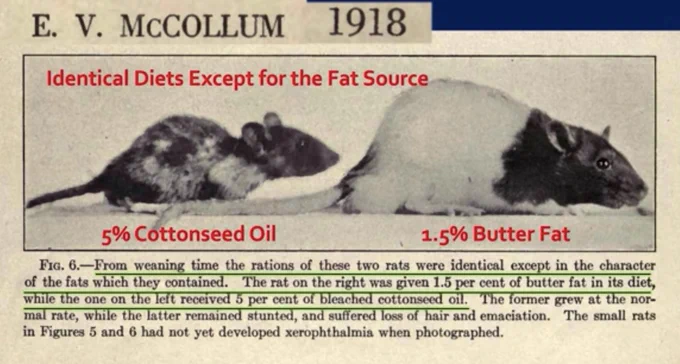Optimize Your Nutrition:
Key Principles for a Healthier You
When it comes to embarking on a journey towards better health through nutrition, the path can seem complicated. However, unraveling these complexities becomes much simpler when you grasp the key principles that yield not just good, but outstanding results.
If you are new to the world of nutrition, understanding these principles will equip you with a compass, guiding you towards a healthier lifestyle and improved well-being. A good starting point is to make a booking with a nutritionist in Dubai like Sedra Jundi.
Before delving into these principles, it's crucial to emphasize that this information doesn't substitute medical advice. Every one of us has a unique medical situation that grows increasingly complicated as we age. Consult with our healthcare professionals before making significant dietary changes.
Principle 1: Recognize Nutrient Depletion
Understanding what depletes your body of essential nutrients is paramount. Consider these depleting factors:
Bad Fats (Canola Oil, etc.)
Depletes: Vitamin E, Minerals.
Herbicides and Pesticides
Depletes: All Minerals, Glycine, B Vitamins, Vitamin K.
Alcohol
Depletes: B Vitamins, Electrolytes, Vitamin K.
Heavy Metals
Depletes: All Minerals, Potentially Vitamin B1, Copper, Selenium.

Sodium Fluoride
Depletes: Minerals, Especially Trace Minerals
Smoking
Depletes: Retinol, Vitamin C, Taurine
Phytic Acid
Depletes: Minerals, Especially Zinc
Mindless Supplement Usage
Depletes: Nutrients Synergistic with X Vitamin/Mineral
Oxidative Stress
Depletes: Electrolytes, Various B Vitamins, Magnesium, Copper, Vitamins C and E, Taurine
Stimulants
Depletes: Vitamin C, Electrolytes, B Vitamins
Statin Medications
Depletes: CoQ10, Vitamin D, Vitamins A, K, and E
Metformin
Depletes: B Vitamins, Magnesium
Anabolic Steroids
Depletes: B Vitamins, Vitamin C, Vitamin D
Birth Control Pills
Depletes: Across the Board
Antidepressants
Depletes: B Vitamins, Vitamin K, Vitamin D
Blood Pressure Medication
Depletes: B Vitamins, Electrolytes
Antibiotics
Depletes: B Vitamins, Vitamin K, Vitamin D, B12
Empty Calories
Depletes: All Nutrients
Principle 2: Nurture a Healthy Gut
Your gut health is central to nutrient absorption. Consider these steps:
- Avoid processed foods
- Skip alcohol and coffee
- Limit grains, especially non-sprouted
- Opt for iron-free fortified foods
- Consume salt mindfully
- Chew food thoroughly
- Choose cooked over raw vegetables
- Stay active and get sunlight
- Incorporate gut-friendly supplements
- Focus on nutrient-rich stews
- Prioritize grass-fed beef gelatine
MEET OUR NUTRITION & INTERNAL MEDICINE TEAM
- All
- Diet and Nutrition
- Internal Medicine

Principle 3: Prioritize Quality
Choose nutrient-rich foods and avoid harmful additives:
- Opt for organic, pesticide-free produce
- Choose antibiotic and hormone-free animal products
- Be cautious of foods high in pesticides (e.g., apples, strawberries)
- Consume filtered water for cooking and drinking
Principle 4: Mind Your Cooking Water
Water quality matters more than you might realize. Tap water can contain harmful contaminants like chlorine, heavy metals, and even traces of pharmaceuticals. These impurities not only affect the taste but also impact the nutritional value of your cooked food. Cooking with filtered water ensures that you're not introducing toxins into your meals and helps preserve the nutrients in your ingredients.
Principle 5: Eat Consciously
Stress doesn't just affect your mental well-being; it also influences your digestion. When you eat while stressed, your body's ability to produce enzymes and digestive juices is compromised.
This hinders proper nutrient absorption and can lead to digestive discomfort.
Slowing down while eating, chewing your food thoroughly, and creating a relaxed eating environment can promote better digestion and nutrient assimilation.
Principle 6: Ditch Harmful Fats
Fats like canola oil, soybean oil, and cottonseed oil might seem harmless, but their production involves high temperatures, chemicals, and solvents.
These processes can alter the fats' structure, leading to cellular damage, inflammation, and health issues.
Opt for healthier fats like olive oil, coconut oil, and grass-fed butter, which provide essential nutrients and promote better cellular function.

Principle 7: Choose Safe Cookware
The containers and cookware you use can impact the quality of your food. Plastics, Teflon, and aluminum can leach harmful chemicals into your meals. Switching to glass or cast iron cookware helps eliminate these risks. Also, avoid reheating food in plastic containers, as heat can cause chemicals to leach into your food. Prioritize safe and non-toxic options for cooking, storing, and reheating your meals.
Principle 8: Embrace Seasonal Eating
Eating foods that are in season not only supports local agriculture but also provides optimal nutrition. Seasonal produce is typically harvested at its peak, ensuring higher nutrient content and better taste. Additionally, the light exposure during different seasons influences the types of nutrients your body needs. By aligning your diet with nature's cycles, you naturally enhance your nutrient intake.
Principle 9: Use Nature's Multivitamins
Certain foods are nutrient powerhouses that can replace or complement multivitamin supplements:
- Pasture-Raised Eggs: Rich in protein, choline, selenium, vitamins A and K, B vitamins, and healthy fats.
- Raw Dairy: Offers zinc, vitamin A, CLA, and iron binders like lactoferrin. It's also a great source of calcium and vitamin K2.
- Organ Meats: Packed with B vitamins, zinc, selenium, iron, vitamin A, copper, vitamin K2, and coenzyme Q10.
These foods provide a spectrum of nutrients that promote overall health and well-being. Including them in your diet can enhance your nutrient intake naturally.
Remember, these principles offer valuable insights into optimizing your nutrition journey. By implementing them, you're taking meaningful steps towards better health and well-rounded nourishment. Always consult a qualified healthcare professional before making significant changes to your diet.
